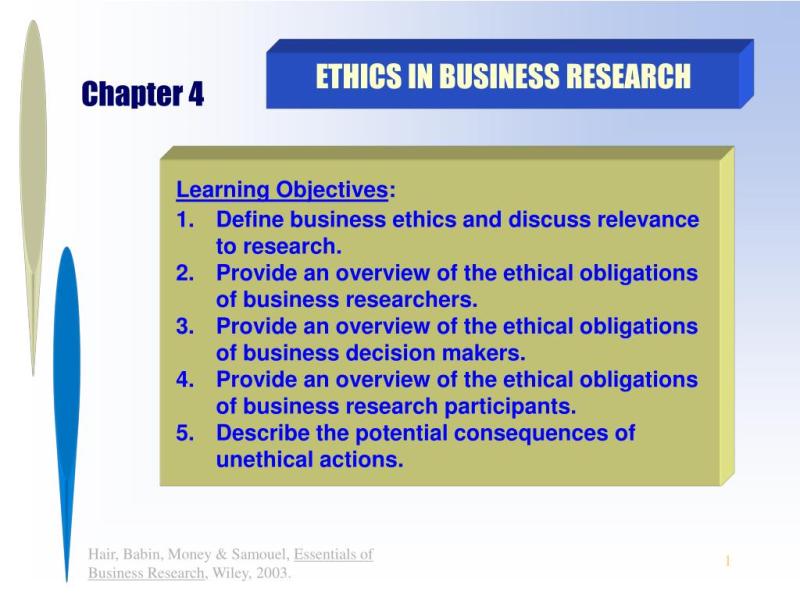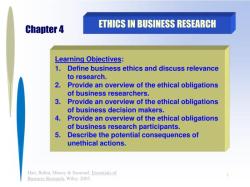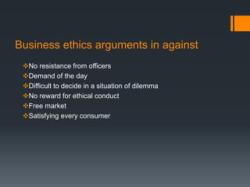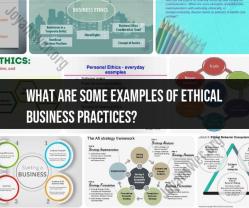What are objectives of Business Ethics?
The objectives of business ethics encompass fostering responsible and ethical practices within organizations. Business ethics involves establishing principles and standards that guide decision-making and behavior in the business environment. Here are the key objectives of business ethics:
Promoting Moral Conduct:
- One of the primary objectives of business ethics is to promote moral conduct and behavior in the business world. This involves encouraging honesty, integrity, and fairness in dealings with employees, customers, suppliers, and other stakeholders.
Ensuring Compliance with Laws and Regulations:
- Business ethics aims to ensure that organizations operate within the legal framework and comply with relevant laws and regulations. This includes areas such as labor laws, environmental regulations, and consumer protection laws.
Building Trust and Credibility:
- Establishing trust is a crucial objective of business ethics. Ethical behavior fosters trust among stakeholders, including customers, investors, employees, and the broader community. Building a reputation for ethical conduct contributes to long-term credibility.
Preventing Unethical Practices:
- Business ethics seeks to prevent unethical practices within organizations. This involves identifying and addressing potential areas of misconduct, such as fraud, corruption, discrimination, and other forms of unethical behavior.
Balancing Stakeholder Interests:
- Business ethics aims to strike a balance between the interests of various stakeholders, including employees, customers, shareholders, and the community. Ethical decision-making considers the impact on all stakeholders rather than prioritizing one group over another.
Fostering Corporate Social Responsibility (CSR):
- Encouraging corporate social responsibility is a key objective of business ethics. CSR involves organizations voluntarily taking actions to contribute to the well-being of society, whether through environmental initiatives, philanthropy, or community development projects.
Safeguarding Employee Rights:
- Business ethics seeks to safeguard the rights of employees within the workplace. This includes fair treatment, equal opportunities, reasonable working conditions, and respect for employees' dignity and well-being.
Promoting Transparency and Accountability:
- Transparency and accountability are integral to business ethics. Organizations are encouraged to disclose information about their operations, financial performance, and environmental impact. Ethical behavior includes being accountable for actions and decisions.
Preventing Exploitative Practices:
- Business ethics aims to prevent exploitative practices, such as child labor, forced labor, and unfair wages. Organizations are encouraged to adopt ethical labor practices that respect the dignity and rights of workers.
Mitigating Conflicts of Interest:
- Business ethics helps identify and mitigate conflicts of interest within organizations. This involves establishing guidelines to manage situations where personal interests may conflict with the interests of the organization or its stakeholders.
Enhancing Organizational Culture:
- Fostering an ethical organizational culture is a key objective. This includes promoting a workplace environment where ethical behavior is valued, recognized, and integrated into daily operations.
Contributing to Long-Term Sustainability:
- Business ethics aims to contribute to the long-term sustainability of organizations. Ethical practices are seen as essential for maintaining a positive reputation, attracting and retaining talent, and ensuring the continuity of business operations.
By achieving these objectives, business ethics contributes to the overall well-being of organizations, their stakeholders, and the broader society. It provides a framework for responsible decision-making and guides organizations toward sustainable and socially responsible practices.
Building a Moral Compass: Business Ethics in Action
Business ethics isn't just a fancy term; it's the guiding force that helps organizations navigate the often murky waters of decision-making. Let's dive into the objectives, principles, and impacts of ethical conduct in the corporate world:
1. Objectives and Goals:
- Promote fairness and integrity: Business ethics aims to establish an environment where decisions are made with honesty, transparency, and respect for all stakeholders.
- Minimize harm and maximize benefit: This involves minimizing negative impacts on employees, customers, communities, and the environment while maximizing overall positive contributions.
- Build trust and credibility: Ethical conduct fosters trust with stakeholders, leading to stronger relationships, improved reputation, and enhanced competitive advantage.
- Promote long-term sustainability: By considering ethical and environmental aspects alongside financial gain, businesses can ensure responsible growth and long-term viability.
2. Alignment with Mission and Values:
Business ethics isn't an alien concept bolted onto an existing framework; it should seamlessly integrate with the organization's mission and values. It provides a practical guide for translating core values like integrity, respect, and responsibility into tangible actions and decision-making principles.
3. Ethical Principles and Guidelines:
Several frameworks and principles guide ethical business conduct, including:
- Universal Ethical Principles: Respect for human rights, justice, honesty, fairness, and accountability.
- Industry-Specific Codes: Professional codes of ethics tailored to specific sectors like accounting or medicine.
- International Standards: UN Global Compact, ISO 26000, and OECD Guidelines for Multinational Enterprises provide broader frameworks for ethical conduct.
- Organizational Codes of Conduct: Internal policies outlining specific ethical expectations for employees and leaders.
4. Impact on Reputation and Stakeholders:
- Enhanced Reputation: Ethical conduct strengthens trust and loyalty, attracting customers, investors, and talent. Consumers increasingly value ethical brands, creating a competitive advantage.
- Stronger Stakeholder Relationships: Positive interactions with employees, suppliers, communities, and the environment build trust and collaboration, leading to improved performance and long-term success.
- Reduced Risks and Liabilities: Ethical practices mitigate legal and reputational risks associated with unethical behavior, contributing to financial stability and future growth.
5. Measuring and Assessing Success:
Assessing progress in business ethics often requires a multi-pronged approach:
- Quantitative Metrics: Track compliance with internal policies, industry standards, and legal regulations.
- Qualitative Measures: Conduct employee surveys, stakeholder engagement discussions, and reputation analysis to gauge perception and trust.
- Impact Assessment: Evaluate the social and environmental impact of business operations and measure progress towards sustainability goals.
Ultimately, the journey towards business ethics is not a destination but a continuous evolution. By setting clear objectives, adopting strong ethical principles, and regularly measuring progress, organizations can build a culture of integrity, build trust with stakeholders, and navigate the complexities of the modern business world with a stronger moral compass.




